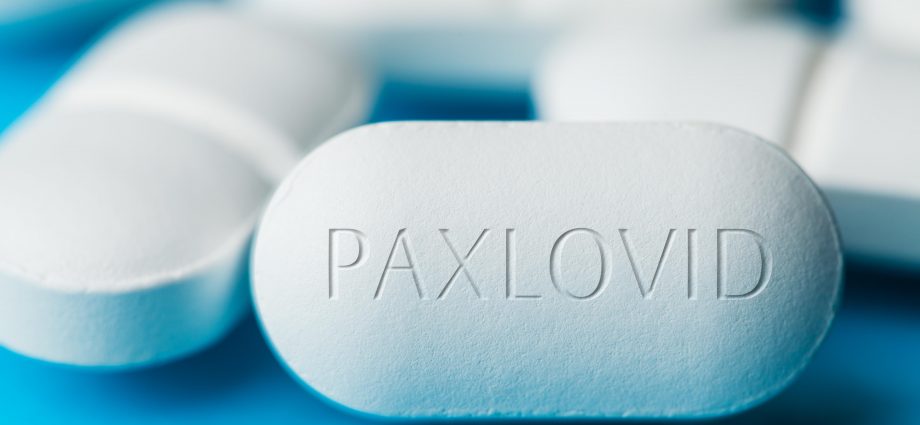TUESDAY, Oct. 31, 2023 (HealthDay News) — The antiviral drug Paxlovid is great at treating COVID-19 infections, but a new study casts doubt on its effectiveness at preventing symptoms associated with long COVID.
Nearly 9,600 veterans given Paxlovid had about the same risk of most post-COVID side effects as vets not treated with the antiviral med, according to findings published Oct. 31 in the Annals of Internal Medicine.
The study suggests that otherwise healthy people infected with COVID might be wasting their time if they take Paxlovid to ward off long-term symptoms, said lead researcher Dr. George Ioannou, director of hepatology with the VA Puget Sound Health Care System in Seattle.
Paxlovid (nirmatrelvir-ritonavir) is typically intended for COVID patients who are at high risk of dying or landing in the hospital, because they have existing health problems that make a severe infection more likely.
“If the only reason you are taking Paxlovid is because you think it will prevent you from developing complications of COVID-19, then maybe you should think twice about that,” Ioannou said.
Studies have shown that Paxlovid can reduce the risk of death or hospitalization from a new COVID infection, researchers said in background notes.
But about 1 in 5 COVID survivors aged 18 to 62 and 1 in 4 who are 65 or older develop one or more lingering symptoms from their initial infection, researchers said.
Many are known collectively as long COVID, and they can linger for weeks, months and even years.
“The effectiveness of Paxlovid in ameliorating the acute adverse events of COVID-19 in appropriate patients is fairly well-established,” Ioannou said. “Now we’re thinking more long term. Beyond those first 30 days, is there any continuing ongoing benefit of Paxlovid?”
Using records kept by the U.S. Veterans Health Administration, researchers identified 9,593 vets diagnosed with COVID and treated with Paxlovid between January and July 2022.
The team then tracked the vets’ health records for six months after their COVID infection, to see if they developed any of a set of 31 health problems that have been identified as potential post-COVID conditions.
These included diseases of the heart, lungs, kidneys, digestive system, brain and muscles, as well as mood disorders like depression or anxiety and general problems like fatigue and erectile dysfunction.
As a last step, researchers matched the Paxlovid-treated veterans to others that had COVID but weren’t treated with Paxlovid, to see if the drug made any difference in warding off long COVID symptoms.
Only one type of post-COVID health problem — blood clots — appeared to occur less often after Paxlovid treatment, results showed. These included blood clots of the veins as well as pulmonary embolisms.
“Those thromboembolic events have been some of the most consistently linked to COVID of all the post-COVID conditions, even in the early days of the pandemic when nobody knew anything about long COVID,” Ioannou said.
Doctors had been hopeful that limiting the severity of a COVID infection would reduce the risk of developing long COVID, said Dr. William Schaffner, a professor of infectious diseases and preventive medicine at Vanderbilt University in Nashville, Tenn.
“I think we have to go back to the notion that we’d better get ourselves vaccinated, because the data indicate that vaccines reduce the risk of long COVID,” Schaffner said. “Treatment might help prevent your evolution into more serious disease, but there’s no evidence here that it provides a substantial benefit against developing long COVID.”
Instead, these results might indicate that long COVID is caused by subtle effects from a COVID infection that aren’t necessarily tied to how severe a person fell ill, said Dr. Fernando Carnavali, an internist at Mount Sinai Hospital in New York City.
Carnavali pointed to a recent University of Pennsylvania study that suggested some of the neurological and cognitive symptoms of long COVID, such as “brain fog,” are linked to lower serotonin levels in these patients.
The study — published Oct. 26 in Cell — suggested that serotonin is reduced because of remnants of the SARS-CoV-2 virus remnants that linger in the gut following infection.
“If this is caused by residual viral particles, what would be the role of an antiviral medication like Paxlovid?” Carnavali asked.
He recommended that people confused by conflicting data about COVID and long COVID talk to their doctor or a specialist.
“We will continue to see studies that perhaps contradict themselves, and this is just natural in the first stages of long COVID research and treatment,” Carnavali said. “What you need is somebody to curate that information for you because it will continue to be like this and we will have information that is contradicting.”
More information
The U.S. Centers for Disease Control and Prevention has more about long COVID.
SOURCES: George Ioannou, MD, MS, director, hepatology, VA Puget Sound Health Care System, Seattle, Wash.; William Schaffner, MD, professor, infectious diseases and preventive medicine, Vanderbilt University, Nashville, Tenn.; Fernando Carnavali, MD, internist, Mount Sinai Hospital, New York City; Annals of Internal Medicine, Oct. 31, 2023
What This Means For You
Healthy people who catch COVID might think twice before taking Paxlovid if they believe the medication will reduce their chances of long COVID.
Copyright © 2026 HealthDay. All rights reserved.

